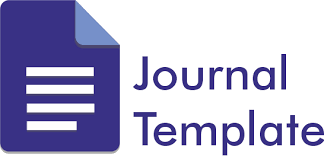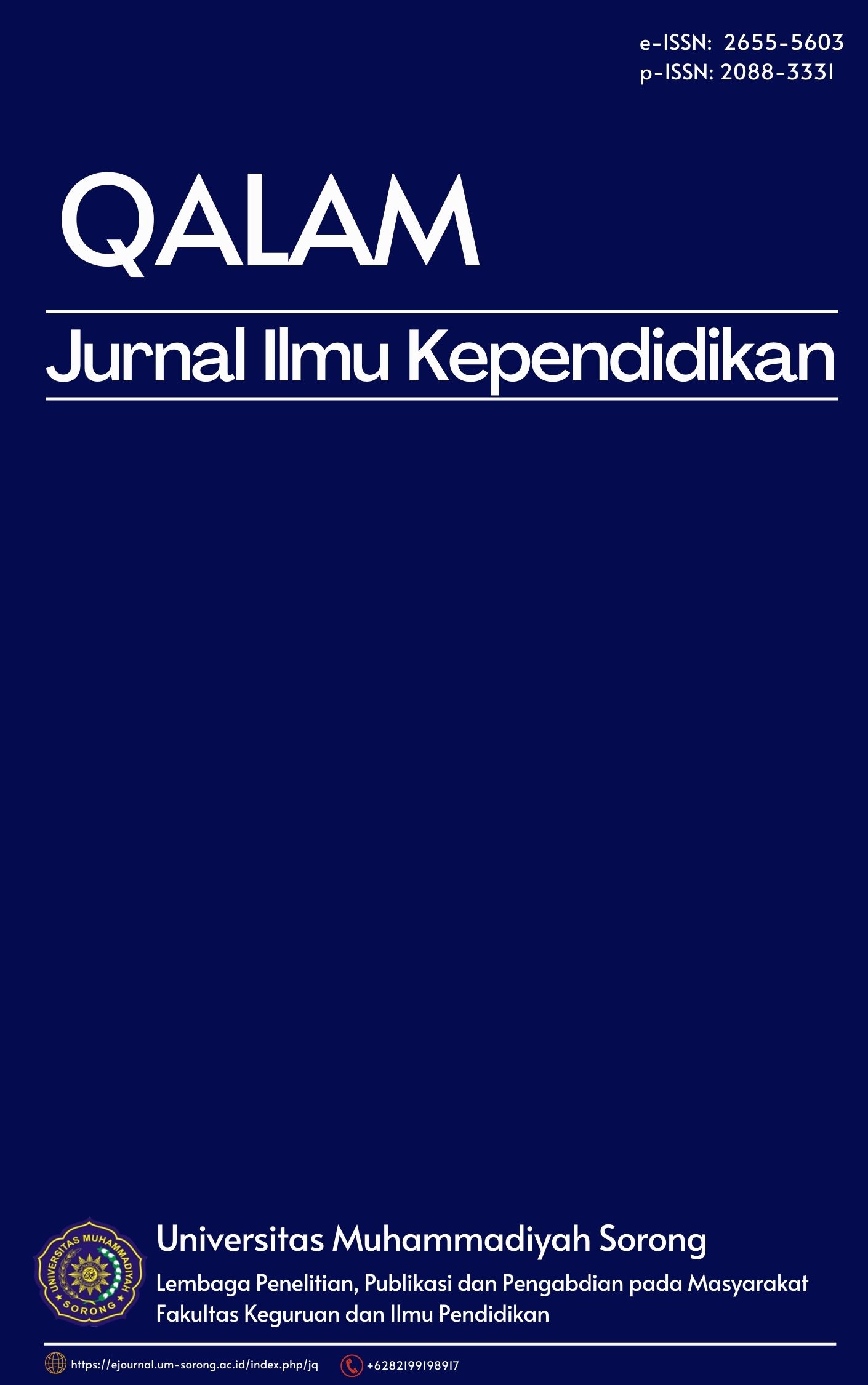Penerapan Buku Digital Kapita Selekta Matematika II Untuk Meningkatkan Hasil Belajar Di Perguruan Tinggi
DOI:
https://doi.org/10.33506/jq.v13i1.3479Abstract
An important aspect in advancing a nation is to enhance the quality of its education, a crucial part of which is the preparation of high-quality teaching materials that are in line with contemporary developments. This research was conducted with the goal of improving student learning outcomes by using a digital book on selected topics in Mathematics II. The study employed the 4D research development method to develop the textbook on selected topics in Mathematics II, which was then applied to third semester mathematics education students. The teaching media was validated by experts competent in language, media, and material aspects. The validation results for the language aspect were 98%, media 95%, and material 99%, indicating that the teaching media is valid. The study found that the average pre-test score was 38.27, while the post-test score was 74.23. Based on the pre-test and post-test results, the n-Gain value of the learning outcomes improvement was 0.6 in the medium category, and the average test score was 79.42 with a classical completeness of 85%. These results demonstrate that the application of the digital book on selected topics in Mathematics II is effective in improving student learning outcomes.
References
Arini, D. P. (2020). Multitasking Sebagai Gaya Hidup, Apakah Dapat Meningkatkan Kinerja: Sebuah Kajian Literatur. Jurnal Psikologi MANDALA, 4(1), 35–42.
Bando, R., Gallego, F., Gertler, P., & Fonseca, D. R. (2017). Books or laptops? The effect of shifting from printed to digital delivery of educational content on learning. Economics of Education Review, 61, 162–173. https://doi.org/https://doi.org/10.1016/j.econedurev.2017.07.005
Daud, A., Aulia, A. F., & Ramayanti, N. (2019). Integrasi teknologi dalam pembelajaran: Upaya untuk beradaptasi dengan tantangan era digital dan revolusi industri 4.0. Unri Conference Series: Community Engagement, 1, 449–455. https://doi.org/10.31258/unricsce.1.449-455
Fathurrahman, M., Badu, S. Q., Abbas, N., & Djafri, N. (2023). Need Analysis of The Capita Selecta Mathematics 2 Course at The Mathematics Education Department. The Seybold Report Journal (TSRJ), 18(05), 2148–2156. https://doi.org/10.17605/OSF.IO/DUFZT
Firmadani, F. (2020). Media Pembelajaran Berbasis Teknologi Sebagai Inovasi Pembelajaran Era Revolusi Industri 4.0. Prosiding Konferensi Pendidikan Nasional, 2(1), 93–97. http://ejurnal.mercubuana-yogya.ac.id/index.php/Prosiding_KoPeN/article/view/1084/660
Kasch, H. (2020). Cover sheet narratives in Language Classrooms and Learner Perspectives : A Study of Nine Learner. September.
Kodama, M., Ishita, E., Watanabe, Y., & Tomiura, Y. (2021). Usage of E-books During the COVID-19 Pandemic: A Case Study of Kyushu University Library, Japan. Lecture Notes in Computer Science (Including Subseries Lecture Notes in Artificial Intelligence and Lecture Notes in Bioinformatics), 12646 LNCS, 475–483. https://doi.org/10.1007/978-3-030-71305-8_40
Mardhiyah, R. H., Aldriani, S. N. F., Chitta, F., & Zulfikar, M. R. (2021). Pentingnya keterampilan belajar di abad 21 sebagai tuntutan dalam pengembangan sumber daya manusia. Lectura: Jurnal Pendidikan, 12(1), 29–40.
Marselina, V., & Muhtadi, A. (2019). Pengembangan Buku Digital Interaktif Matematika Pada Materi Geometri. Jurnal Inovasi Teknologi Pendidikan, 6(2), 196–207.
Maydiantoro, A. (2020). Model-Model Penelitian Pengembangan (Research and Development). Jurnal Pengembangan Profesi Pendidik Indonesia (JPPPI), 3(2), 185.
McCarthy, E., Tiu, M., & Li, L. (2018). Learning Math with Curious George and the Odd Squad: Transmedia in the Classroom. Technology, Knowledge and Learning, 23(2), 223–246. https://doi.org/10.1007/s10758-018-9361-4
Muanas, I., & Mariono, A. (2018). Pengembangan E-Modul Berbasis Aplikasi Android Materi Buku Digital Mata Pelajaran Simulasi Digital Kelas X Akuntansi Dan Keuangan Lembaga Di Smk Negeri 2 Sudimoro Pacitan. Jurnal Mahasiswa Teknologi …, 1–7. https://jurnalmahasiswa.unesa.ac.id/index.php/jmtp/article/view/24031
Nafrin, I. A., & Hudaidah, H. (2021). Perkembangan Pendidikan Indonesia di Masa Pandemi Covid-19. EDUKATIF : Jurnal Ilmu Pendidikan, 3(2), 456–462. https://doi.org/10.31004/edukatif.v3i2.324
Najuah, Lukitoyo, P. S., & Wirianti, W. (2020). Modul Elektronik: Prosedur Penyusunan dan Aplikasinya. In Yayasan Kita Menulis.
Ndruru, R. ratnasari. (2022). Tantangan Penggunaan Literacy Digital Terhadap Anak. https://osf.io/preprints/jwdr6/%0Ahttps://osf.io/jwdr6/download
Novitasari, K. (2019). Penggunaan Teknologi Multimedia Pada Pembelajaran Literasi Anak Usia Dini. Jurnal Golden Age, 3(01), 50. https://doi.org/10.29408/goldenage.v3i01.1435
Nurchaili. (2016). Menumbuhkan Budaya Literasi Melalui Buku Digital. Libria, 8(2), 197–209.
O’Halloran, K. L., Beezer, R. A., & Farmer, D. W. (2018). A new generation of mathematics textbook research and development. ZDM, 50(5), 863–879. https://doi.org/10.1007/s11858-018-0959-8
Putri, G. E., & Festiyed. (2019). Analisis Karakteristik Peserta Didik dalam Pembelajaran Fisika untuk Pengembangan Buku Digital (e-book) Fisika SMA Berbasis Model Discovery Learning. Jurnal Penelitian Pembelajaran Fisika, 5(2), 139–146.
Radiusman, R. (2020). Studi Literasi: Pemahaman Konsep Anak Pada Pembelajaran Matematika. FIBONACCI: Jurnal Pendidikan Matematika Dan Matematika, 6(1), 1. https://doi.org/10.24853/fbc.6.1.1-8
Rahmadi, I. F., Khaerudin, K., & Kustandi, C. (2018). Kebutuhan Sumber Belajar Mahasiswa yang Mendukung Pembelajaran Berbasis Teknologi Informasi dan Komunikasi di Perguruan Tinggi. JTP - Jurnal Teknologi Pendidikan, 20(2), 120–136. https://doi.org/10.21009/jtp.v20i2.8620
Rosdianto, H., Murdani, E., & Hendra, H. (2017). The Implementation of Poe (Predict Observe Explain) Model to Improve Student’s Concept Understanding on Newton’s Law. Jurnal Pendidikan Fisika Unimed, 6(1), 55–57.
Ruddamayanti. (2019). Pemanfaatan Buku Digital dalam Meningkatkan Minat Baca. Prosiding Seminar Nasional Pendidikan Program Pascasarjana Universitas PGRI Palembang, 2, 1193–1202.
Seno, Y. A., Zainal, A., & Eka, A. (2019). Persepsi Mahasiswa Terhadap Pelaksanaan E-Learning Dalam Mata Kuliah Manajemen Sistem Informasi. Jurnal Kajian Teknologi Pendidikan, 02(3), 183.
Srikandika, P., Perwita, D. P., & Oktrisma, Y. (2019). Analisis model pengembangan bahan ajar (4D, ADDIE, ASSURE, HANNAFIN dan PECK). Journal of Chemical Information and Modeling, 53(9), 1–38.
Turel, Y. K., & Ozer Sanal, S. (2018). The effects of an ARCS based e-book on student’s achievement, motivation and anxiety. Computers & Education, 127, 130–140. https://doi.org/https://doi.org/10.1016/j.compedu.2018.08.006
Utomo, A. P., Hasanah, L., Hariyadi, S., Narulita, E., Suratno, & Umamah, N. (2020). The effectiveness of steam-based biotechnology module equipped with flash animation for biology learning in high school. International Journal of Instruction, 13(2), 463–476. https://doi.org/10.29333/iji.2020.13232a
Wahab, A., Junaedi, J., & Azhar, M. (2021). Efektivitas Pembelajaran Statistika Pendidikan Menggunakan Uji Peningkatan N-Gain di PGMI. Jurnal Basicedu, 5(2), 1039–1045. https://doi.org/10.31004/basicedu.v5i2.845
Zahwa, F. A., & Syafi’i, I. (2022). Pemilihan Pengembangan Media Pembelajaran Berbasis Teknologi Informasi. Equilibrium: Jurnal Penelitian Pendidikan Dan Ekonomi, 19(01), 61–78. https://doi.org/10.25134/equi.v19i01.3963
Zaini, H., Darmawan, D., & Hernawan, H. (2019). Penggunaan Bahan Ajar Berbasis Digital Book Untuk Meningkatkan Hasil Belajar Siswa Dalam Mata Pelajaran Matematika Pada Materi Logika Matematika. Teknologi Pembelajaran, 4(1), 816–825. https://journal.institutpendidikan.ac.id/index.php/tekp/article/view/467
Zhao, J., Hwang, G.-J., Chang, S.-C., Yang, Q., & Nokkaew, A. (2021). Effects of gamified interactive e-books on students’ flipped learning performance, motivation, and meta-cognition tendency in a mathematics course. Educational Technology Research and Development, 69(6), 3255–3280. https://doi.org/10.1007/s11423-021-10053-0
Downloads
Published
How to Cite
Issue
Section
License

This work is licensed under a Creative Commons Attribution-ShareAlike 4.0 International License.
The article copyright is owned by the author and Qalam: Jurnal Ilmu Kependidikan

This work is licensed under a Creative Commons Attribution-ShareAlike 4.0 International License.




